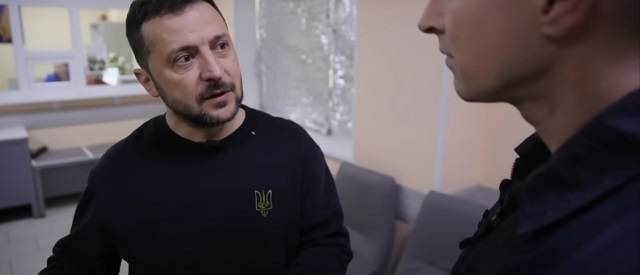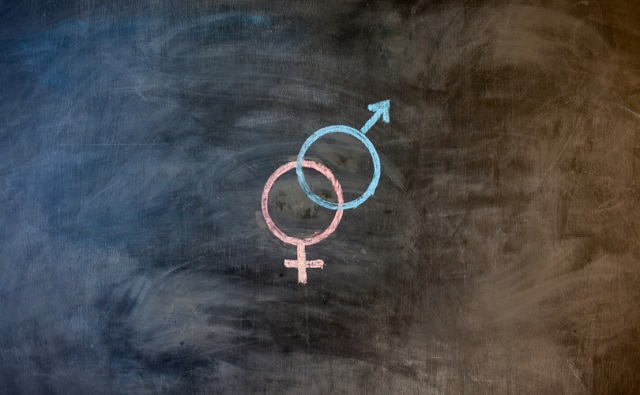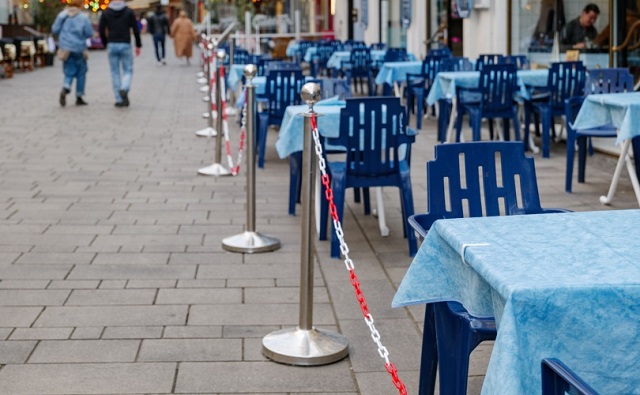armed forces
Things worth fighting for
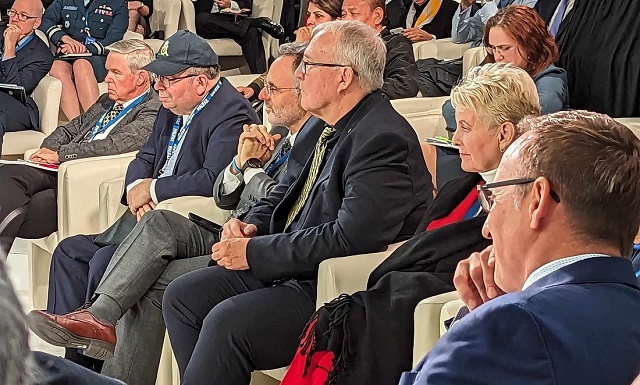
US ambassador David Cohen, Israeli ambassador Iddo Moed, Bill Blair, Cindy McCain, Peter MacKay. Photo: PW
Click here to subscribe to The Paul Wells Newsletter.
Of course people disagree. That’s what we’re trying to protect
“You really like going to those things,” an acquaintance remarked at Pearson Airport when I told him I was heading to the Halifax International Security Forum. Fair enough, I guess. I was just in Warsaw for their annual gathering of generals, defence ministers, think tankers and diplomats. I was in Halifax a year ago, and occasionally in previous years. I’ve been to security conferences in Herzliyah and Munich, long ago. The world is always on the brink of war, and lately has taken to spilling over several brinks at once. So there is always much to discuss.
Unfortunately much of what there is to discuss is horrible. On Saturday a panel moderator slumped into a plush chair, in front of the assembled cabinet ministers, diplomats, generals and think tankers, and introduced himself as Jason Rezaian from the Washington Post. He looked like any newspaperman from Central Casting, which means, approximately, like me. He reminded the audience that in 2014 he was taken prisoner by the Iranian regime and held in a Tehran penitentiary for over 500 days.
On Saturday at dinner I was reminded that Huseyin Celil, a Canadian citizen, has been in a Chinese prison for 17 years. Vladimir Kara-Murza, who spoke at Halifax in 2021, has been in a Russian prison for close to two years.
Prison is not even close to the worst fate that can befall a journalist, a dissident or a population. Halifax this year was preoccupied with continuing slaughter: in Ukraine, where the optimism of last year’s conference has been displaced by mounting concern; and in Israel and Gaza.
This newsletter is my full-time job. To support my work, consider becoming a free or paid subscriber.
I’d been at the conference venue, a Westin hotel at the end of Hollis St., for perhaps ten minutes when a visiting soldier who knows Ukraine well told me that pushing the Russians all the way out of Ukraine — that is, out of Crimea and the eastern Donbas region — would take twice as many weapons and equipment as the West has sent Ukraine to date. This was the soldier’s way of engaging a debate opened by former NATO secretary-general Anders Fogh Rasmussen, who’s suggested bringing Ukraine into NATO without the regions currently occupied by Russia. This sounds easier, but as former Estonian president Toomas Ilves told me in an interview that will soon be on my podcast, a Russian Crimea and Donbas would essentially be permanent bases from which to harass the rump Ukraine.
So much for the heady optimism of a year ago, when fighting the Russians to a standstill still felt like some kind of triumph. Joe Biden’s promise to back Ukraine “for as long as it takes” is starting to sound ominously like a promise to keep up the West’s end of a stalemate. Several commentators at Halifax said that if all the weapons that were sent to Ukraine in 2023 had arrived in 2022, 2023 might have gone better. As for 2024, if it features mounting Ukraine fatigue in Western populations and ends with Donald Trump’s re-election, this year might look rosy in retrospect.
Of course the big complicating factor in any discussion of today’s world is Israel’s response to Hamas’s Oct. 7 attack. The conference agenda had plainly undergone substantial surgery to accommodate a discussion of the Gaza violence and its repercussions. A crowd of local pro-Palestinian protesters appeared at intervals across the street from the conference hotel, although they were loudest on Friday night when just about everybody attending the conference was at a dinner several blocks away.
My own sense is that the establishment and perpetual defence of a Jewish state of Israel is very partial payment toward the heavy debt humanity owes the Jewish people. I note that there was a robust and enduring ceasefire in Gaza as late as October 6, and that Hamas brought that ceasefire to a monstrous end. Hamas having opened hostilities, it falls to Israel to end them, by destroying Hamas’s ability to contemplate or deliver any similar attack in the future. Carrying out that task is inevitably an enterprise of horrifying violence.
Too much, say the protesters. “You support GENOCIDE,” they shouted outside the Westin Nova Scotian. I guess that’s going to depend on definitions. I had dinner on Saturday with Dolkun Isa, the president of the World Uyghur Congress, and I got the distinct impression he’s against genocide. Yet I have a hard time dismissing those protesters outright just because they weigh horrors differently from me. I have friends who seem to have spent the last six week gleefully looking for reasons to write off people who disagree with them. I’ve often thought moral clarity was overrated. Shouldn’t these questions be morally tormenting? And in a world where such lesser matters as vaccine mandates and carbon taxes become the stuff of furiously polarized elections, should we really be so surprised that life and death on a vast scale produces divisions too?
Share
I was nervous when I heard, late on Friday, that the Halifax Forum organizers were going to give their highest honour, a prize in the name of the late U.S. Senator John McCain, to “the people of Israel.” That sure wouldn’t go over well with the protesters outside the Westin. As it happened, by Saturday morning it was raining and the protesters were nowhere to be seen. More to the point, the prize went, not just to any people of Israel, but to Brothers and Sisters In Arms, an organization that spent much of 2023 protesting against Benjamin Netanyahu’s autocratic judicial “reforms,” but pivoted to assisting recovery efforts after the Oct. 7 attack. A neat way of emphasizing that Israel is a stubbornly pluralistic democracy, and that the Israeli state is not always the best steward of the Israeli people’s interest.
The conference, and the individual participants even more so, found other ways to express a diversity of opinion that might have surprised outsiders. (It’s easy enough to see for yourself: streaming archives of most of the sessions are on Youtube.) A panel with the title “Victory in Ukraine = Example For Israel” featured panelists politely disagreeing with the premise of the title. For starters, Ukraine had no settlements on occupied Russian territory, as one questioner in the audience pointed out.
Mouaz Moustafa, executive director of the Syrian Emergency Task Force, was one of several people at the forum who argued that the Israeli government’s heavy and deadly bombardment of Gaza is counterproductive at best. “Such a campaign, where there are thousands and thousands more children being killed than Hamas fighters, is not something that makes, frankly, Israel or the West safer,” he said.
This sentiment — that even when brutally wronged, Israel is not automatically right — was reinforced Saturday afternoon by the publication in the Washington Post of a long essay on Israel-Gaza by Joe Biden. Biden moved early to support Israel and ward off Iranian escalation, moving two aircraft carriers to the Mediterranean and himself to Israel. Now he was signaling — hell, saying in so many words — that his support had limits:
“There must be no forcible displacement of Palestinians from Gaza, no reoccupation, no siege or blockade, and no reduction in territory. And after this war is over, the voices of Palestinian people and their aspirations must be at the center of post-crisis governance in Gaza.
As we strive for peace, Gaza and the West Bank should be reunited under a single governance structure, ultimately under a revitalized Palestinian Authority, as we all work toward a two-state solution. I have been emphatic with Israel’s leaders that extremist violence against Palestinians in the West Bank must stop and that those committing the violence must be held accountable. The United States is prepared to take our own steps, including issuing visa bans against extremists attacking civilians in the West Bank.”
If Ukraine and Israel were the conference’s main themes, another repeated refrain was that bad things often come in threes, and war in Europe and the Middle East could become even grimmer if they were joined by conflict in the Asia-Pacific. Several speakers referred to China as the West’s “pacing threat,” which essentially means only China has the means and desire to compete with the West in shaping the world.
It was in this context — of a world growing constantly more dangerous in constantly more complex ways — that so many hallway conversations in Halifax featured variations of the observation that Canada is increasingly close to being a failed state. It sure would be great if Canada could contribute reliably to dissuading Chinese ambitions in the Asia-Pacific, but that would require a working navy, and Wayne Eyre told the conference we’re fresh out. Bill Blair, Justin Trudeau’s latest defence minister, met the large U.S. congressional delegation that always flies up to Halifax from Washington, and I’m told most of the questions had to do with his department’s annual Performance Report, which says that over the past year, “the growing demands for CAF responses challenged the already unstable foundation of operational readiness given personnel shortfalls, equipment deficiencies, and insufficient sustainment including critical stores of ammunition.”
Blair said at the conference that Canada needs to make “significant new investments” in defence; he was also heard to say, in private meetings, that in delivering this message within the government he faces “headwinds from the centre.” The headwinds will be portrayed on Tuesday, in a closely-watched speech, by Chrystia Freeland, who was said to be so displeased with Anita Anand’s constant push for more defence spending that soon both Anand and Blair had new jobs. Nearly every ambassador in Ottawa begins nearly every conversation by asking whether the Trudeau government or any potential successor will take the burdens of a troubled world more seriously anytime soon. Of course, Canada being a sovereign country, these decisions are not made by ambassadors. But they get to ask, and notice.
I suspect Freeland’s delivery of her economic and fiscal update will be one of the most important political moments of the last five years. Nobody really has any idea what the minister’s statement will say. She is the champion of activist government on odd-numbered days and of mighty fiscal restraint on even. She will be sure of some new direction on Tuesday, and I suppose it’s a toss-up whether she will even remember by Friday what that direction was supposed to be. The good news, as we were reminded in Halifax, is that Canada is close to being the least of the world’s problems. The bad news is that it also seems determined to become the least of the world’s remedies.
Paul Wells has written for the Toronto Star, the National Post, and the Montreal Gazette. Perhaps most Canadians know him best for the 19 years he spend writing long form journalism with Maclean’s magazine and for his regular appearances on CBC’s The National.
armed forces
Trudeau government has spent $10 million promoting DEI in the military as recruitment flounders
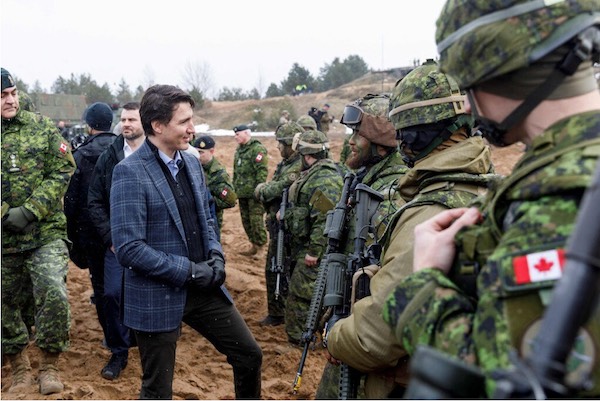
From LifeSiteNews
“These are not Canadian values of freedom and democracy. These are cancel culture values of censorship, of authoritarianism, of radical ideologies that are alien to our culture.”
Canada’s Department of National Defence has spent nearly $10 million on so-called diversity, equity and inclusion programs since Prime Minister Justin Trudeau took office in 2015.
According to records released May 7 by Blacklock’s Reporter, the Department of National Defence has paid consultants and contractors $9,510,247 to promote “equity and inclusion” within the military.
“It is clear a lack of diversity in the Canadian Armed Forces is just one of the issues confronting this government,” a 2021 briefing note claimed. “National Defence is committed to building an inclusive and modern defence team that reflects Canada’s diversity, values and culture.”
The spending was disclosed in the House of Commons in response to Conservative MP Cheryl Gallant’s question: “What is the total value of contracts relating to diversity, equity and inclusion services in the Department of National Defence since 2015?”
According to the records, Canadians’ tax dollars were spent on polls, guest speakers, presentations, workshops, and LGBT flags. The workshops covered topics including ” the gendered nature of security,” while one talk discussed “integrating gender and diversity perspectives.”
In 2021, the defence department revealed that they have two separate committees and eight programs which worked to appoint gay advisors to “innovate” religious instruction and gender-neutral uniforms.
Since Trudeau took office, the Canadian military has become increasingly woke and has been forcing LGBT ideology on its personnel. Interestingly, at the same time, military recruitment has plummeted.
In June, the Canadian military was criticized for “raising the pride flag” in honor of the “2SLGBTQI+ communities.”
That same month, Canadian troops in Latvia were forced to purchase their own helmets and food when the Trudeau government failed to provide proper supplies. Weeks later, Trudeau lectured the same troops on “climate change” and disinformation.
In November, officials admitted that the nation’s military is shrinking to dangerously low numbers as Trudeau continues to push the LGBT agenda on Canadian soldiers. In addition to low recruitment, the military is struggling to retain soldiers.
A Canadian Armed Force member previously told LifeSiteNews that between the COVID vaccine mandates and pushing the LGBT agenda, Canadians soldiers have lost confidence in the military.
“And it’s not stopping with the gender ideology; it’s going to include medical assistance in dying,” he added. “There’s something fundamentally changing. And for most people, it doesn’t sit well with them.”
He explained that the new ideologies are driving away new recruits, as the primary source of recruitment for the military is Saskatchewan farm boys who want to serve Canada – not radical left-wing ideologies.
“That farm boy looks at the army and with the blue hair and the face, piercings and ideologies and all that stuff,” he said. “And it doesn’t have the same pull because it doesn’t represent the farm boy’s values.”
“This is not the Canada that we signed up to defend. It’s an alien ideology that people don’t resonate with,” he continued. “These are not Canadian values of freedom and democracy. These are cancel culture values of censorship, of authoritarianism, of radical ideologies that are alien to our culture.”
In January, a Commanding Officer of the 4th Canadian Division Support Group (CDSG) of the Greater Toronto Area Detachment threatened soldiers who dared to throw out tampon dispensers which had been placed in men’s bathrooms as part of the military’s new “inclusion” policy.
armed forces
Canada’s first ‘transgender’ military chaplain suspended for alleged sexual harassment
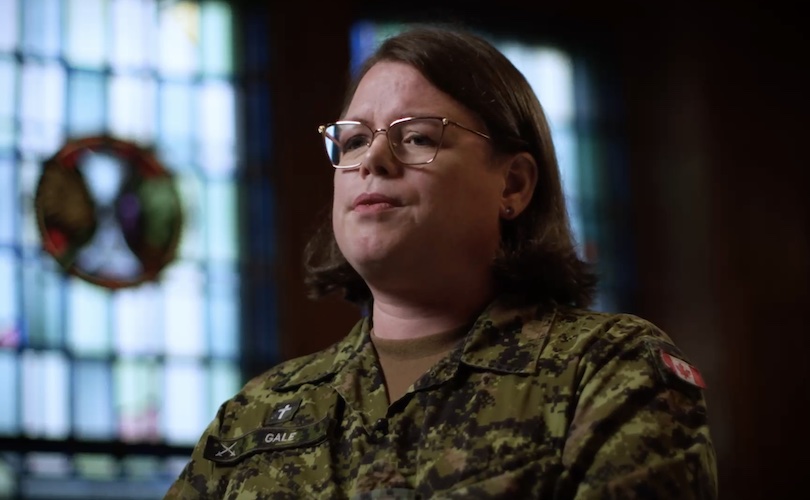
From LifeSiteNews
Canadian Armed Forces Captain ‘Beatrice’ Gale reportedly sought to grope a male soldier while drunk and was suspended just a few weeks after the Canadian military promoted him for ‘International Transgender Day of Visibility.’
Canadian Department of National Defence has suspended a “transgender” military chaplain it previously celebrated after he reportedly sought to grope a male soldier at the Royal Military College while drunk.
On March 28, the government highlighted Canadian Armed Forces Captain “Beatrice” Gale, a man who “identifies” as a woman, for “International Transgender Day of Visibility.” The military’s “first openly transgender chaplain” has been “a vocal advocate” for the so-called “rights” of transgender-identifying members, according to the press release, resulting “in policy changes that contributed to more inclusive gender-affirming medical care for CAF members.”
“I hope that being a transgender chaplain [sic] sends a message to the 2SLGBTQI+ community that the Royal Canadian Chaplain Service cares,” he said. “That it cares for that community.”
Just weeks later, however, the chaplain is generating a different kind of publicity.
True North reports that Gale’s chaplaincy has been revoked following a hearing finding he made an “inappropriate comment or request to another individual.”
Gale was determined to have violated the Queen’s Regulations and Orders by “behav[ing] in a manner that adversely affects the discipline, efficiency or morale of the Canadian Forces.” The specific details of the offense have not been officially confirmed, but, according to an anonymous source, he became inebriated at dinner and asked to grope a male lieutenant’s buttocks.
“The mandate for Captain Gale to serve as a Canadian military chaplain remains suspended. The Chaplain General will consider the implications of the summary hearing’s outcome to determine if additional administrative actions within their authority are required,” said DND spokesperson Andrée-Anne Poulin. Gale was docked two days pay and 20 days leave and is currently on administrative duty.
“If a male officer behaved in a similar manner towards a subordinate female, the situation would be dealt with differently, and the offender’s name would be leaked to the press. Unfortunately, there is a lack of equality in how the Canadian Armed Forces handle such allegations,” attorney Phillip Millar, a former combat officer who now represents Canadian soldiers, told True North.
He added that he once had a client who “was not granted the same leniency for much less serious alleged infractions. However, in the case of a transgender offender who held a position of trust as a padre and a senior in rank, the matter was simply swept under the rug.”
As is the case in the United States, Canada’s armed forces are currently struggling to attract recruits in the wake of adopting “woke” policies such as COVID-19 shot mandates, “climate change” lectures, and pro-LGBT “identity” initiatives.
The DND declared last month that increased “diversity and inclusivity” are “vital” to creating an effective military and that they “enrich the workplace.”
-
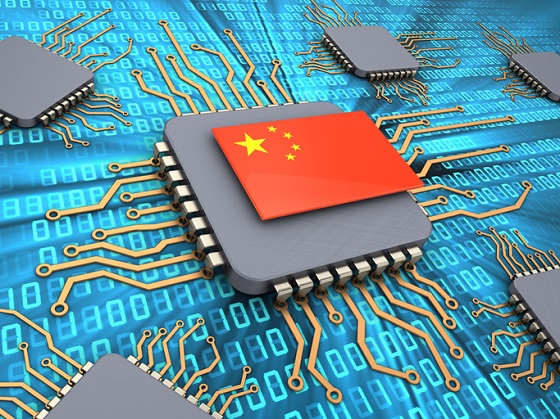
 Automotive8 hours ago
Automotive8 hours agoForget Tariffs: Biden Should Look to Domestic Mining to Thwart Chinese EVs
-
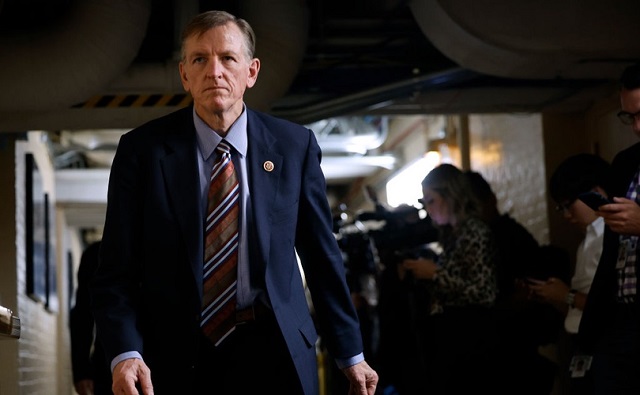
 International2 days ago
International2 days agoRep. Paul Gosar grills Biden official on government funding of underage ‘gender transitions’
-
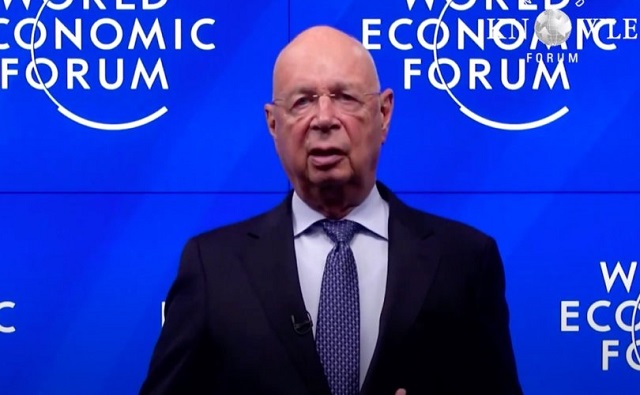
 Great Reset2 days ago
Great Reset2 days agoDr. Robert Malone reacts to Klaus Schwab’s resignation: ‘Resistance is not futile’
-

 Business2 days ago
Business2 days agoGovernment red tape strangling Canada’s economy
-
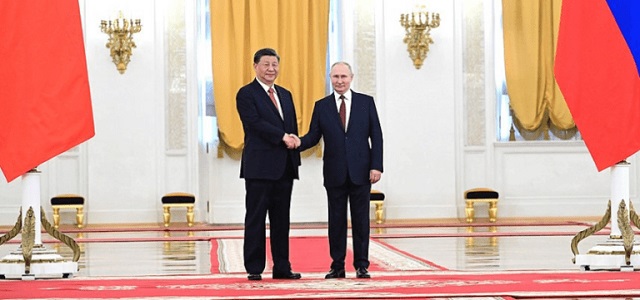
 Agriculture2 days ago
Agriculture2 days agoThe China – Russia “Grain Entente” – what is at stake for Canada and its allies?
-
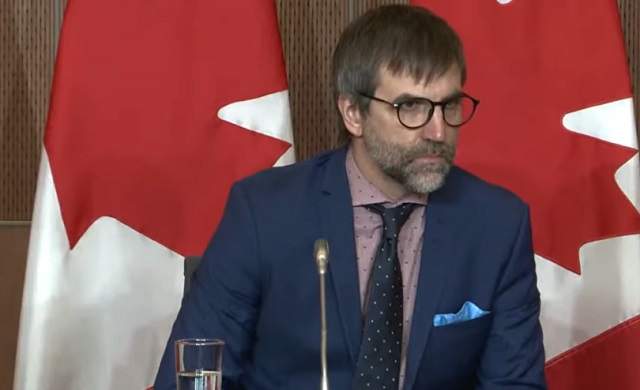
 Business2 days ago
Business2 days agoTrudeau’s environment department admits carbon tax has only reduced emissions by 1%
-
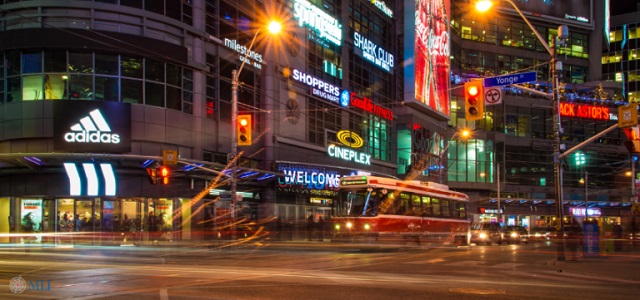
 MacDonald Laurier Institute21 hours ago
MacDonald Laurier Institute21 hours agoToronto’s “Sankofa Square” – The terrible folly and historic injustice of erasing the legacy of abolitionist Henry Dundas
-
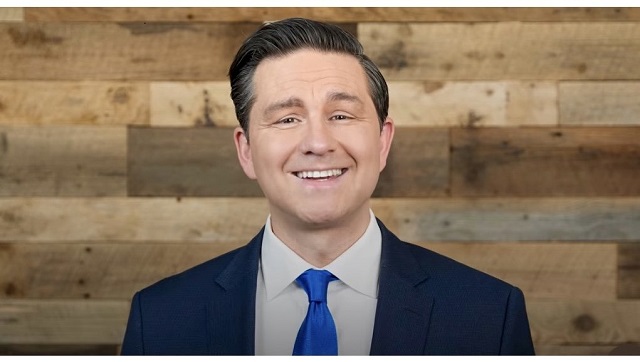
 Bruce Dowbiggin2 days ago
Bruce Dowbiggin2 days agoThe Most Dangerous Man In Canada: Emmanuel Goldstein Reborn





